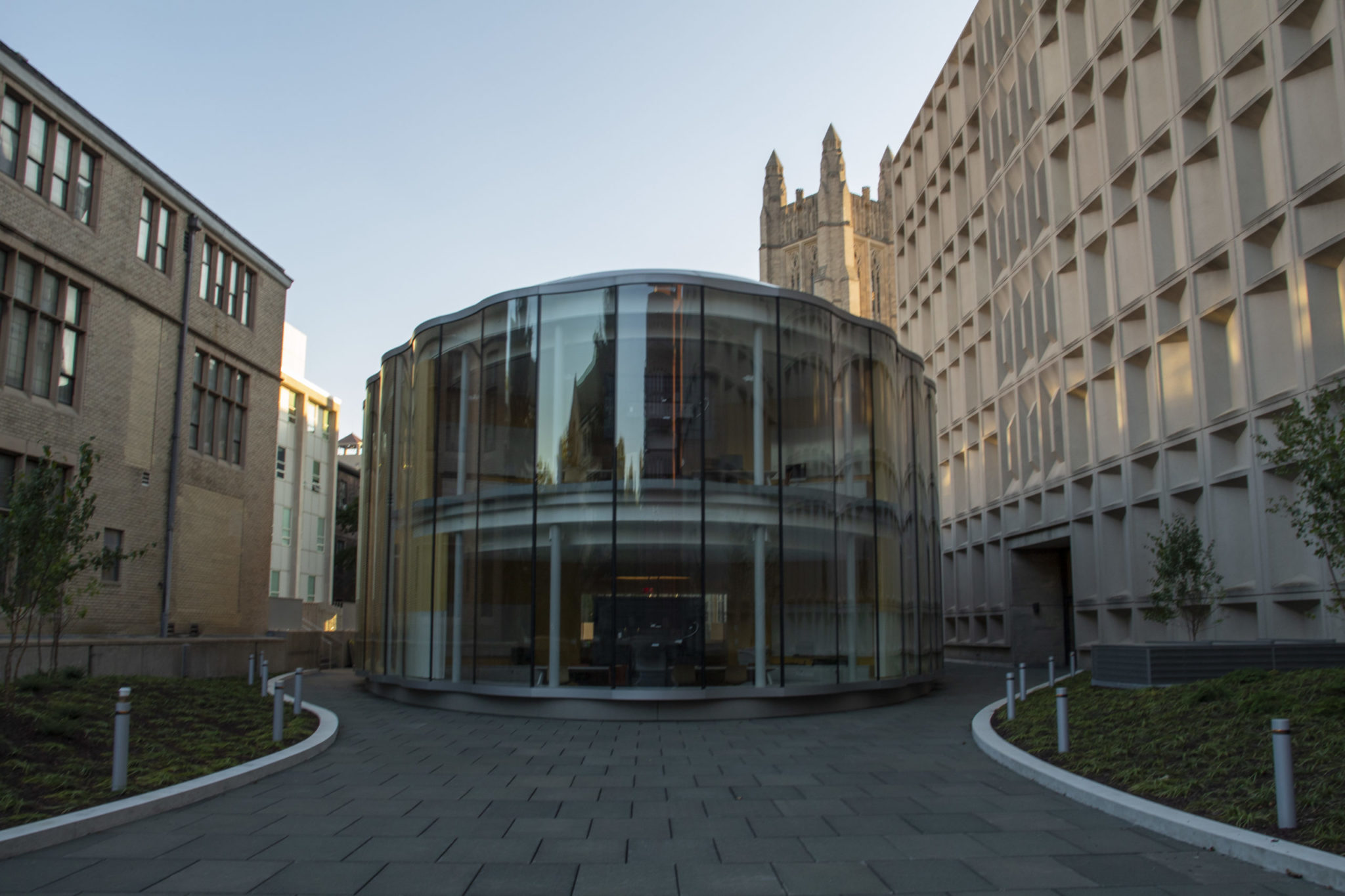Anne Wyllie details SalivaDirect innovation at Tsai CITY
On Tuesday, Simplex Sciences hosted Anne Wyllie as their first guest in the Spring Speaker Series at the Tsai Center for Innovative Thinking at Yale.

Lily Dorstewitz, Staff Photographer
It is tough to imagine the 2020 NBA bubble being such a success without research done by Anne Wyllie, a research scientist at the Yale School of Public Health. The Lakers may not have won a historic championship and LeBron James might never have received his fourth ring.
Wyllie discussed her work on SalivaDirect in a Tuesday talk at the Tsai Center for Innovative Thinking at Yale. The event was hosted by Simplex Sciences, an independent Yale student-run venture which aims to provide DNA ladders to research labs across the country. When the pandemic began, scientists used nasopharyngeal swabs for COVID-19 testing. But these swabs were uncomfortable for many patients and supply chain bottlenecks led to testing shortages. Wyllie wondered if there was a less invasive way, like saliva-based testing, to screen for COVID-19 particles. From there, the SalivaDirect project was born.
Broadly speaking, COVID-19 testing works in three steps. First, fluid samples are taken from the human body. Second, RNA material is extracted from the sample. Finally, the RNA is amplified using a RT-qPCR machine to analyze for traces of the COVID-19 virus.
“We made two large breakthroughs,” Wyllie said. “We determined that saliva, when processed properly, can be more sensitive than NP swabs when run through a RT-qPCR machine and that we didn’t need the RNA extraction step.”
Wylle stored saliva at various temperatures and realized that expensive buffers, once thought to be crucial to lab procedures, were not required to maintain efficacy. This insight brought down the cost of the collection of saliva from around $28 to just a few cents. She also realized that by adding proteinase k, an enzyme that breaks down proteins, a saliva sample could be broken into enough pieces for RT-qPCR to effectively detect COVID-19 without the RNA extraction step.
The effects of SalivaDirect have been far-reaching. In August 2020, the SalivaDirect kit received Emergency Use Authorization from the United States Food and Drug Administration. Since then, 174 American labs have administered some variation of the test, testing over 4.4 million samples. The test’s affordability is especially significant.
“SalivaDirect is the world’s worst business model,” Wyllie said. “We don’t want prices to be any higher than they need to be.”
The Yale team charges no royalties on their technology and has created what they called an “open-source” model, with all the required protocols and reagents posted online. As a result, labs across the country have felt more comfortable trusting the protocol and reaching out to the team for advice. Wyllie noted that these isolated labs feel more connected, especially now that there is an active Google group where scientists can share advice.
Recently, the SalivaDirect project received funding from the Rockefeller Foundation to hire more staff and increase awareness. Additional funding was also secured from the foundation to provide testing for Afghan refugees in New Haven.
Wyllie was also invited to participate in U.S. President Joe Biden’s COVID-19 Global Summit hosted by the United Nations.
Erin Pinsky, a personal friend of Wyllie and a high school teacher who attended the event, said that SalivaDirect is making a huge difference for schools.
“Back then we were talking about the potential implication of testing at the public school level,” Pinsky said. She recalled how she and Wyllie would have frequent discussions about the state of Wyllie’s research and its implementation within schools.
Through the COVIDCheck Colorado program, 15 school districts have used SalivaDirect to test over 440,000 samples. Ohio State University is close to conducting a million tests daily as of March 2022.
When asked why other labs didn’t think to perform saliva tests, Wyllie noted that many clinical labs have been hesitant to work with saliva, due to the “misconception” that it can be difficult to work with.
While most of the research was conducted virtually with teams rotating into the lab, Wyllie said one moment stands out as her proudest.
“We had the SalivaDirect team over last year for dinner at my house,” Wyllie said. “Sitting there and seeing that students knew each other and how many people were similarly aligned was a highlight for me.”
Wyllie ended the talk by encouraging students to reach out to her if they were interested in remote internships.
Wyllie hails from New Zealand.
Correction, April 13: This article has been corrected to accurately reflect Wyllie’s title and clarify details of the SalivaDirect tests.







